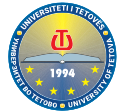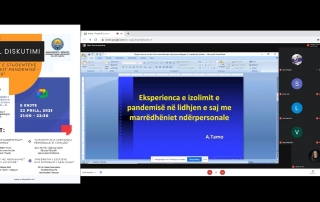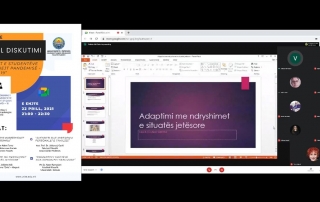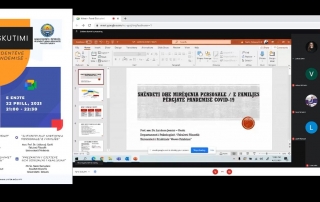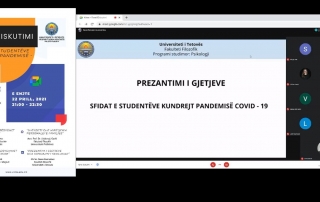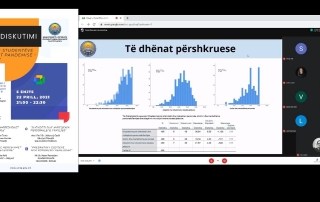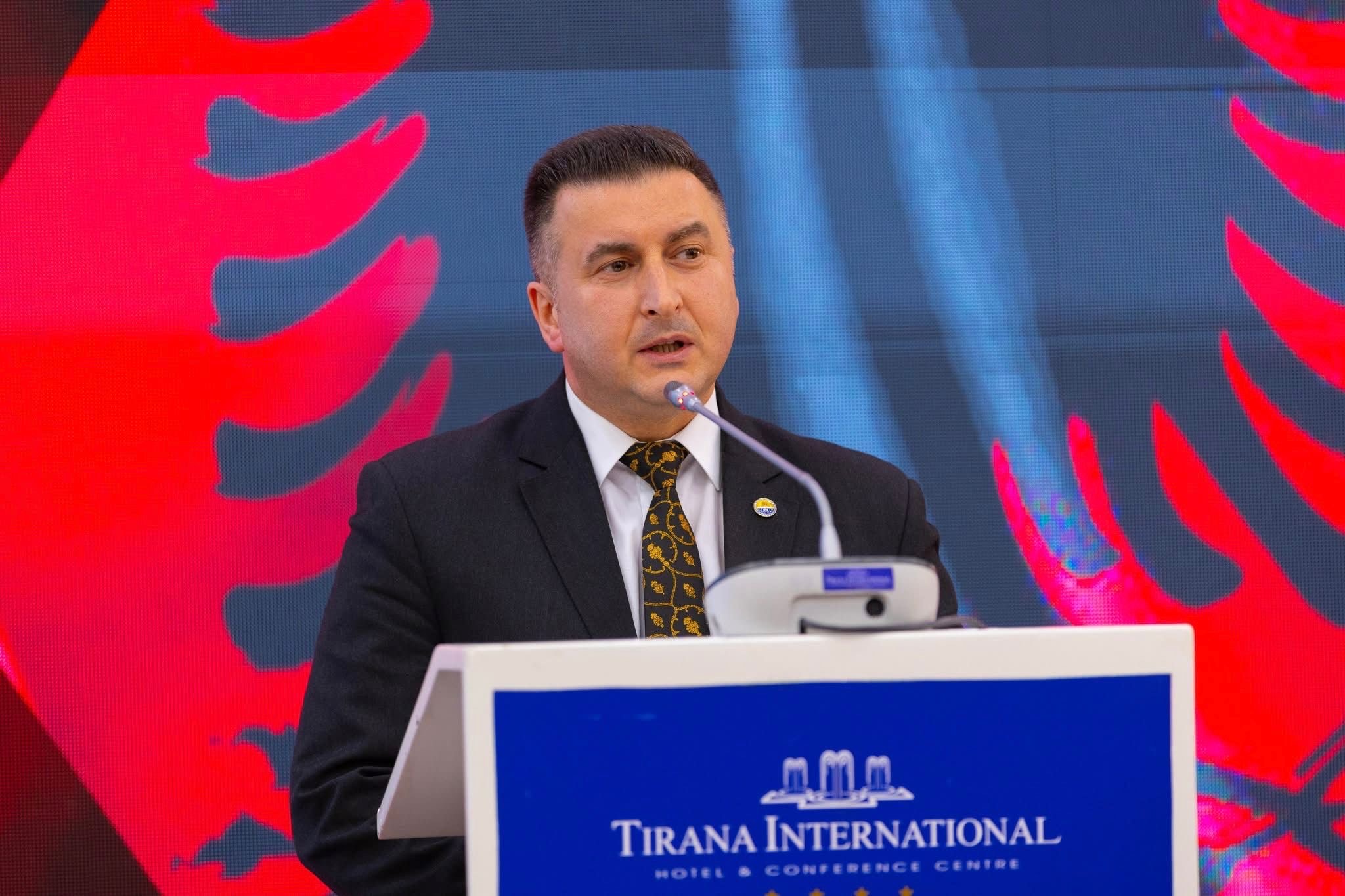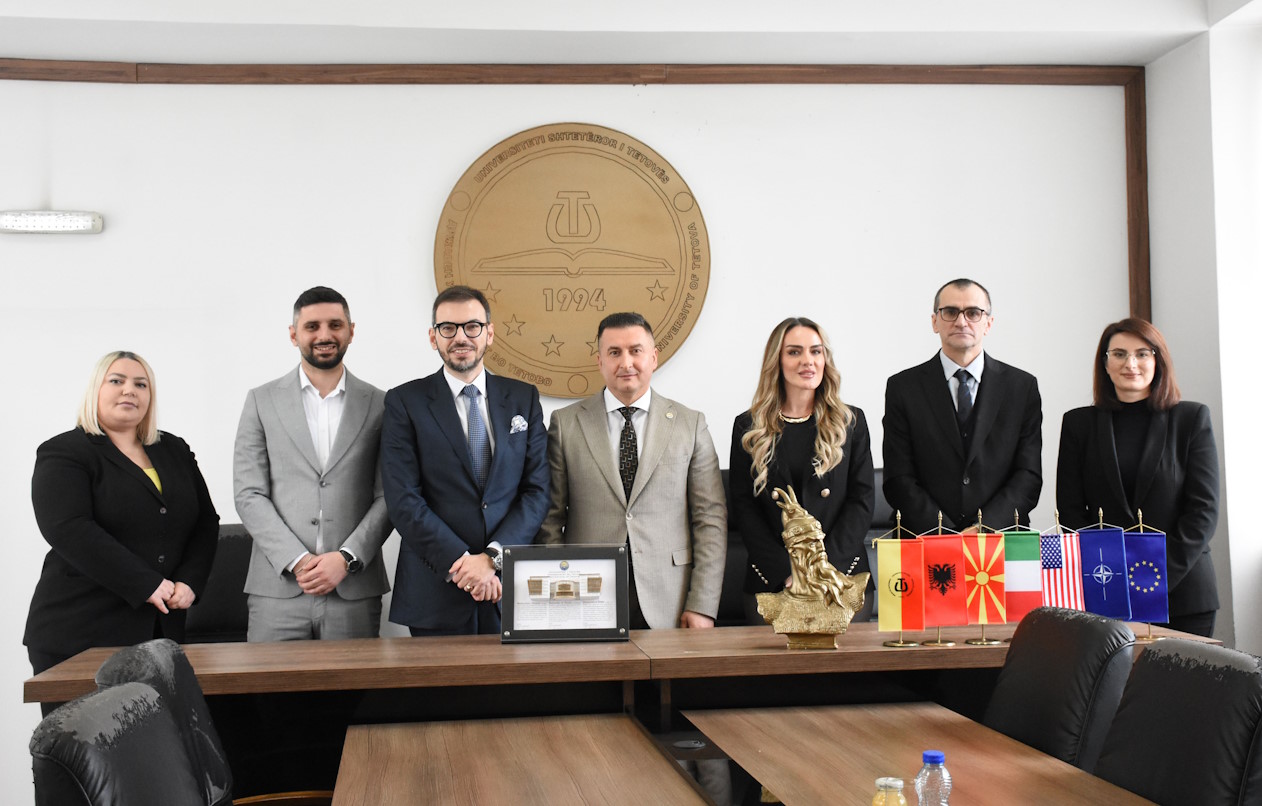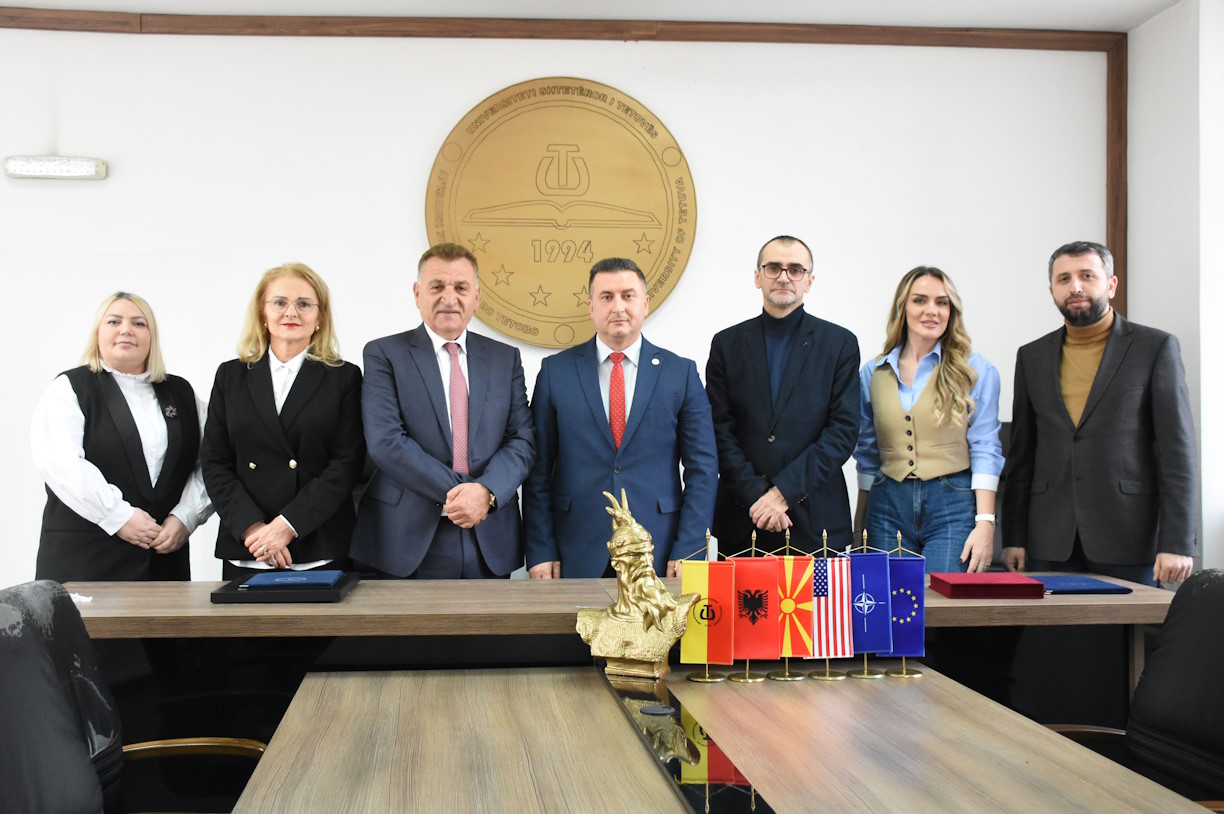Faculty of Philosophy of the University of Tetova, on April 22, 2021, conducted an online panel discussion on topic: “Students’ challenges against the Covid-19 pandemic”. This activity was attended by well-known professors from Albania and Kosovo, who shared their experiences and views through the relevant presentations.
The panel discussion was opened by the Head of the study program of Psychology of the University of Tetova, Prof. Dr. Lulzim Murtezani, who said that this topic is extremely worrying, with what is happening in our daily lives. “We all face these pandemic circumstances, of this ailment, that is happening all over the planet. There is no one, without exception, who can avoid these influences. What is the dark picture of our daily lives is that constant threat to our health, precisely it is that chronic stress, anxiety and fear of infection. We as a study program of Psychology, based on the slogan of the European Union, according to which there is no physical health, without mental health, designed an approach, designed a way not to be alone in the position of passive defender against these threats, which we all face, and especially in this regard we found it reasonable to design a survey and at the same time, in the second part of our activity was to organize this virtual panel discussion. I believe that the main issue we need to discuss today is how we can make this period easier. In this regard, I am confident that the participation of panelists will enrich this panel discussion with their messages and suggestions”- said the Head of the study program of Psychology of the University of Tetova, Prof. Dr. Lulzim Murtezani.
In this activity also participated the Dean of the Faculty of Philosophy of the University of Tetova, Prof. Dr. Ibish Kadriu, who welcomed this panel discussion, congratulated the leaders of the study program of Psychology, for the initiative and organization of this panel and encouraged them, they will have continued support in the future for such initiatives and organizations, which are in the interest of institutional representation and in the general social interest. “As rarely in history, the whole world is stuck and feels almost powerless against the deadly virus Covid-19. Against all these negative effects from isolation, the post-pandemic period is expected to be with psychological trauma, which will be difficult to avoid, despite the change of mass approach or the creation of new social psychology. The pandemic has also affected the mental health of many citizens and this phenomenon is observed every day. The pandemic has hit every area of life, especially the education system, at all levels, from preschool to university. The University of Tetova and the Faculty of Philosophy, reacted quickly to the challenges and trials caused by the pandemic, by adapting to the requirements and protocols recommended by health institutions, committing the damages to be as small as possible and the consequences to be as short-term as possible. Thus, within a few days, all the necessary preparations were made for the successful implementation of online courses.
The topic you are addressing is very valuable and of particular interest, as it treats the challenges faced by students during the Covid-19 pandemic, along with their professors. I think that discussions and research in this regard are necessary to have a clear picture, which would help to correct possible mistakes and improve and advance positive results”- said the Dean of the Faculty of Philosophy of the University of Tetova, Prof. Dr. Ibish Kadriu.
The topics that were discussed in this panel discussion were: “Isolation and interpersonal relationships”, by Prof. Dr. Adem Tamo, from the Faculty of Social Sciences of the University of Tirana; “Adapting to life situation changes”, by Mr. Sc. Valdete Adili, from the High School “Drita” in Kichevo; “Personal / family health and well-being”, by Ass. Prof. Dr. Liridona J. Gashi, from the Faculty of Philosophy of the University of Prishtina; as well as “Presentation of findings from the survey”, by Mr. Sc. Naser Ramadani of the Faculty of Philosophy of the University of Tetova.
